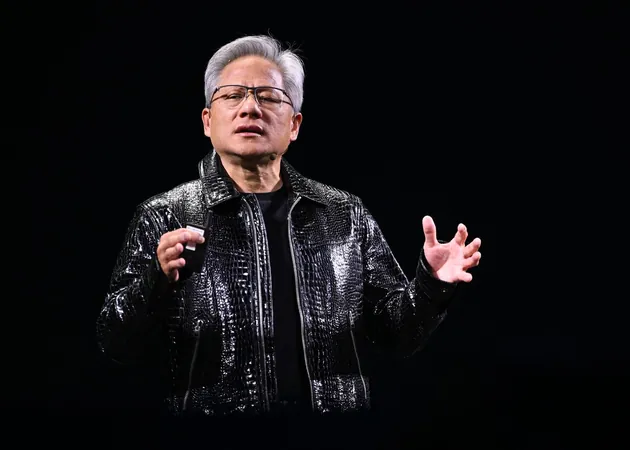
Quantum Computing Stocks Plummet After Nvidia CEO Stuns Industry with Long-Term Predictions
2025-01-08
Author: Kai
In a surprising turn of events, stocks in the quantum computing sector nosedived sharply on Wednesday. Key players like Rigetti Computing (RGTI), D-Wave Quantum (QBTS), IonQ (IONQ), and Quantum Computing (QUBT) all experienced significant losses, following remarks made by Nvidia CEO Jensen Huang at a recent analyst meeting.
During the event, Huang expressed a sobering outlook for the timeline of 'very useful quantum computers,' stating that they are likely still 15 to 30 years away from practical application. This revelation has sent shockwaves through the industry, as many were anticipating faster advancements in the field.
Huang elaborated, 'If you kind of said 15 years for very useful quantum computers, that would probably be on the early side. If you said, you know, 30, it’s probably on the late side. But if you picked 20, I think a whole bunch of us would believe it.' His comments underscore the significant challenges that still lie ahead in making quantum computing a viable alternative to classical computing for complex tasks.
In addition to his predictions, Huang emphasized Nvidia's role in the quantum landscape, suggesting that the company is uniquely suited to collaborate with quantum computing firms. He noted that quantum computers require highly efficient classical computers for error correction, and Nvidia is positioned to provide the fastest classical systems available.
The market reacted strongly to Huang’s statement, with D-Wave Quantum experiencing a staggering 33% drop by Wednesday afternoon. Rigetti, IonQ, and Quantum faced similar fates, each declining by around 40%. Additionally, the Defiance Quantum (QTUM) exchange-traded fund, which includes these companies along with other tech names like Nvidia, also suffered a downturn, falling by 4.5%.
As the quantum computing race continues, investors are left questioning the future of these technologies and the long timeline Huang has proposed. Will these comments stifle innovation, or could they lead to renewed focus on creating more robust classical systems to support quantum breakthroughs? Only time will tell, but one thing is for certain: the road to quantum computing remains longer and more complex than many had hoped.
Stay tuned as we continue to follow this developing story in the world of technology and investment!



 Brasil (PT)
Brasil (PT)
 Canada (EN)
Canada (EN)
 Chile (ES)
Chile (ES)
 Česko (CS)
Česko (CS)
 대한민국 (KO)
대한민국 (KO)
 España (ES)
España (ES)
 France (FR)
France (FR)
 Hong Kong (EN)
Hong Kong (EN)
 Italia (IT)
Italia (IT)
 日本 (JA)
日本 (JA)
 Magyarország (HU)
Magyarország (HU)
 Norge (NO)
Norge (NO)
 Polska (PL)
Polska (PL)
 Schweiz (DE)
Schweiz (DE)
 Singapore (EN)
Singapore (EN)
 Sverige (SV)
Sverige (SV)
 Suomi (FI)
Suomi (FI)
 Türkiye (TR)
Türkiye (TR)
 الإمارات العربية المتحدة (AR)
الإمارات العربية المتحدة (AR)